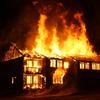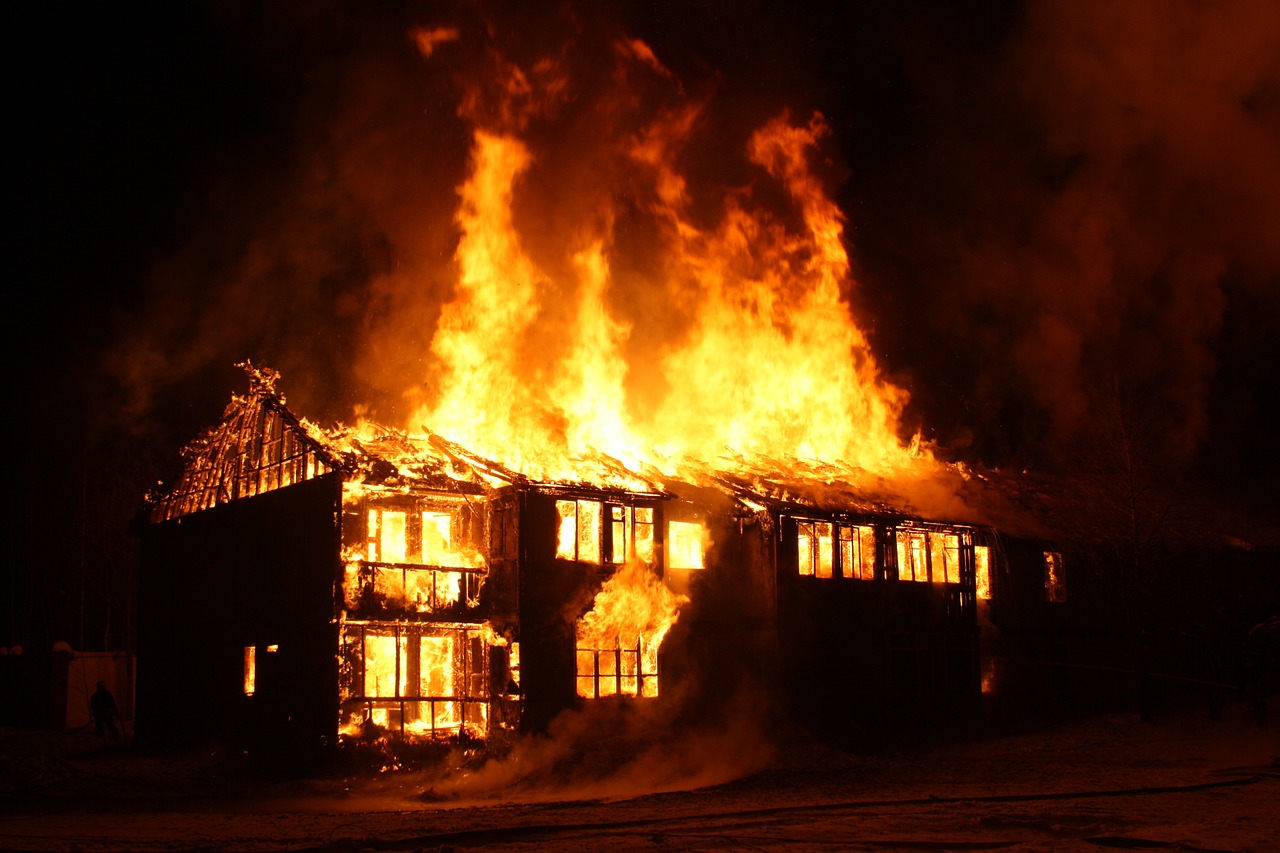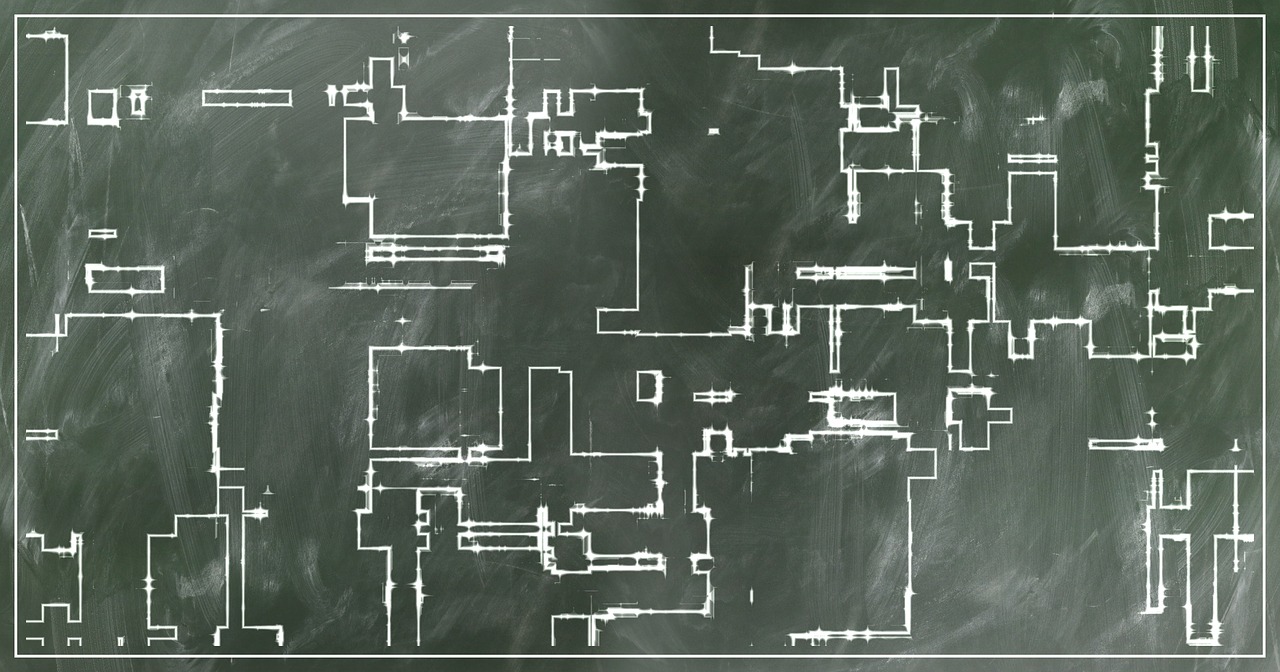
Home Safety and Fire Prevention Guide


Every year there are more than 300,000 house fires across the US, and these disasters are one of the most frightening things a homeowner can have to deal with. Luckily, there are a number of things you can do to protect yourself from a fire starting in your home and to protect yourself and your family if it does.
Home Fire Safety Tips
It's always possible for a house to catch on fire no matter how careful the occupants are. So, to make sure you are alerted to any fire and have the best chance of safely escaping the house, you should have a smoke alarm on every floor of your home. It's also bestto have a smoke alarm outside of every bedroom or inside of the bedroom if the personkeeps the door closed while sleeping. Also, test the smoke alarms monthly and change the batteries yearly or sooner if they start chirping. Additionally, smoke alarms should be replaced every ten years. Also, if possible, install a sprinkler system. Thiscan provide significant protection.
Before a Fire
Once a fire starts, you won't have time to do anything more than escaping the fire. So, before one starts, you need to prepare, and here is how.

Make an Escape Plan
Every household should have an emergency plan in place in case of a fire and be ready to use it. If there are children in the household, you should make a drawing of the plan and mark two possible exits for each room, windows included. Also, indicate the location of all smoke alarms.Additionally, as a part of the plan, choose a location a safe distance away from your home to meet to make sure that everyone has escaped. Be sure to mark your meeting place on the drawing.
Make it clear to everyone that once they are out of the house, they are to stay out. If you find someone is missing, tell the fire department or 911 operatorwhen you call. The fire department is trained and equipped to handle rescues. Make sure your house number is clearly visible from the road and that children understand how and when to call 911.
Practice It
Once your plan is complete, practice it. Having a fire drill at least twice a year is best. Try to make the drill as realistic as you can. But, if you have children, warn them ahead of time to avoid scaring them. Also, practice in the daytime first.
However, it is a good idea to eventually have a night time fire drill. You'll want to see if the alarm wakes everyone up. If it doesn't, someone will need to be assigned to wake up anyone that has trouble waking up. Someone should also be assigned to help anyone that needs assistance leaving the house.
Another issue some households need to prepare for is escaping the second story of a home. Generally, the best way to do this is to have an escape ladder ready in an easily accessible spot. Everyone should practice using it from the first floor to make sure they can use it. However, read all of the manufacturer's instructions first and carefully follow them. Also, children should only practice on the first floor with an adult present.
You should also practice sealing yourself in a room since it may not always be possible to escape. If it were an actual fire, you would want to open a window if possible and signal for help. This would also allow fresh air into the room.
In case a fire ever does happen, always keep your escape route clear. Also, during a fire, choose the safest escape route. You'll want to avoid smoke and fire when possible and seal yourself in a room if the passage is too dangerous.
During a Fire
If a fire started in your home right now, would you be ready? According to the Red Cross, a homeowner may only have two minutes to escape from their home. This isn't much time, so you need to be ready and know what to do before the fire starts. Here is what to do.
A Safe Exit
If a fire starts, that can't immediately be put out. You need to make sure everyone in the household quickly gets safely out of the house. You'll also want to help any pets. If you can't get a person or a pet out of the house, inform the 911 operator or the fire departmentas to where they are located.
If you can't get out yourself, make sure you close the door and block any vents and cracks around your doors. Then, call 911 and try to signal for help from your window. Keep the windows open if possible to let fresh air in.
Should your clothes catch on fire, be sure to cover your face and then drop onto the ground and roll back and forth until it is out. An alternative for those who can't stop, drop, and roll is to put out the flames with a towel or blanket.
While leaving a house to escape a fire, first check to see if smoke is coming from under the door or ifthe door or doorknob is hot. If you find any of this is occurring, look for an alternative exit. If it seems safe to open the door, open it slowly and be ready to close it if there is a lot of smoke or fire.If it is safe,crawl along the ground.Doing this will help you to avoid the poisonous gases and heavy smoke that accumulate at the ceiling first.
To immediately treat burns, if you get any, apply cool water for 3-5 minutes, and then get help immediately by calling 911. The fire department can help as well.
People with Special Needs
Some people may have more difficulty getting out of the house because they use a wheelchair or walker or have other mobility issues. It is essential in these cases to prepare for an emergency in advance by preparing your house so everyone can escape if necessary. You should also contact any emergency services you may need and make sure any special needs are on file.
After a Fire
There are a few things you'll want to make sure you do after the fire to stay safe and help make recovering from the fire easier.
- Arrange for safe housing. It could take a bit before you are able to stay in your house, so you'll need a safe place to stay. If you have trouble arranging a place, the Red Cross may be able to help.
- Ask the fire department if it is safe to enter your home. You may want to recover your belongings or see what you need to report to your insurance company. But, before you enter your home, you need to ask the fire department if it is safe. You'll also want to talk to them before having your utilities reconnected.
- Get in touch with your insurance company. Your insurance company may have some things they want you to do, such as conducting an inventory or making arrangements to keep your property safe until it can be repaired.
- Save your receipts. You'll want proof of any expenses related to the fire. Also, whenever possible, it's best to have receipts for any itemsthat you intend to claim were damaged or destroyed in the fire.
Prevent Home Fires
Most home fires can be prevented. You just need to take some simple precautions,which we will discuss.
Space Heaters
Portable space heaters should be checked carefully before you use them. Make sure you check to see that the heater has been evaluated by the Underwriters Laboratory (UL) before you buy it. Also, see if the heater is made with a thermostat control mechanism that will turn the heater off automatically should it tip over.
Once you buy a space heater, only use K-1 kerosene in it and don't overfill it. Then, only run the portable space heater in well-ventilated rooms and keep it at least three feet away from any combustible objects.
Cooking Safety
Kitchens are full of fire hazards, but with adequate precautions, you can avoid fires. One of the best things you can do to avoid a fire is to stay in the kitchen while cooking on your stove. Leaving the kitchenwith the stove on, even for a short period of time,risks a fire and it could spread quickly.Watch your sleeves while cooking as well. Loose sleeves can catch fire more easily than you may realize.
Be cautious outside as well. Keep any grills at least ten feet away from anything flammable, such as fences, decks, and overhangs. Also, keep a fire extinguisher nearby. Even with careful precautions, a fire could still occur, and it's best to be prepared.
Fireplaces and Chimneys
Another way to reduce the chance of a house fire is to be careful with any wood stoves,fireplaces, and chimneys. Be sure to maintain these. Inspect them annually and check for any obstructions monthly.
You should also use a heavy fire screen. It can keep burning logs from rolling out and help keep sparks from flying out and starting a fire. Also, of course, never go to bed or leave the house unless the fire is completely out.
Electrical Cords
Worn or damaged electrical cords are a fire hazard. Always replace them immediately. Also, don't run your electrical cords under carpets or furniture.
Light switches that feel hot are also a fire hazard. It's essential to keep them shut off and have them replaced. Anotherfire hazard is plugging three-prong cords into two-slot extension cords or outlets. To be safe, only plug these cords into three-prong outlets.
Children
Children don't always understand fire, so it's crucial to teach them that it is not a toy. Also, keep lighters and matches locked away, and never leave children alone around candles orstoves when they are in use.
Final Thoughts
A fire in your home is terrifying, but thankfully most house fires can be prevented. By following proper safety guidelines, such as replacing damaged electrical cords and keeping fire out of the reach of children, you can keep most house fires from happening in the first place.
If one does happen, do not panic! By having an exact plan of what to do in case of a fire and practicing it with your family, you can help ensure everyone gets out safely.
If you travel, it would be prudent to incorporate smoke detectors in to security system to recevie alerts in case of a fire so the system can alert you to call the Fire Department.
Fire Safety Resource Links
- Family Fire Safety Tips
- Fire Safety for Kids
- Free Customized door hangers, fliers and activity guidess
- Fire Safety for Kids by Sparky
- Keep Your Family Safe: Fire Safe
- Make a plan
- National Fire Protection Association (NFPA) Educational Materials
- Useful Fire Safety Links for Kids
- What to do in a Fire – Kidshealth
